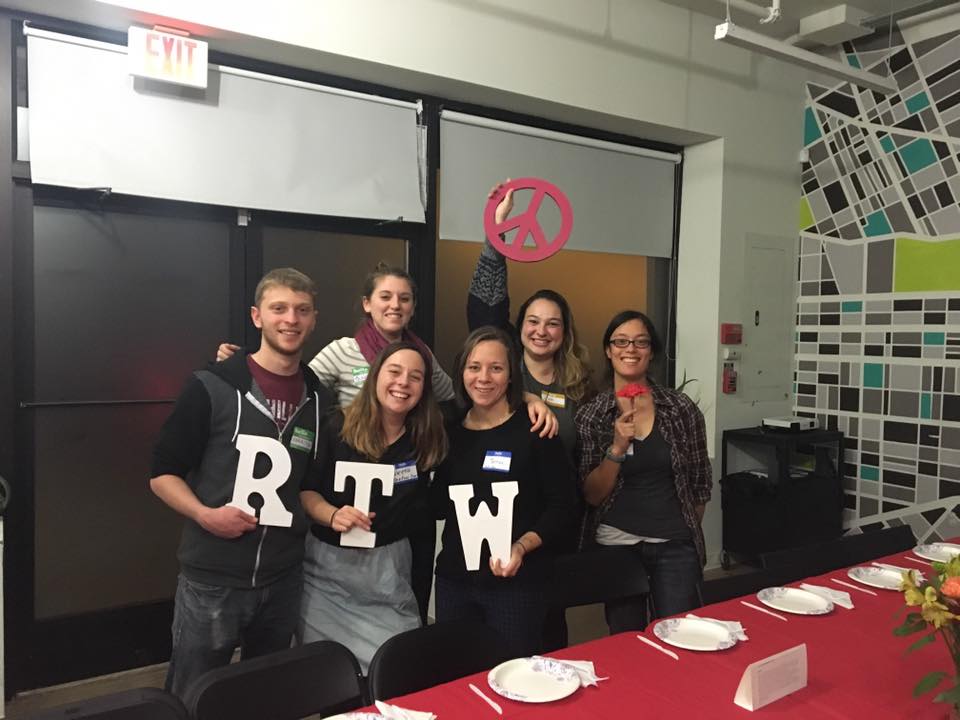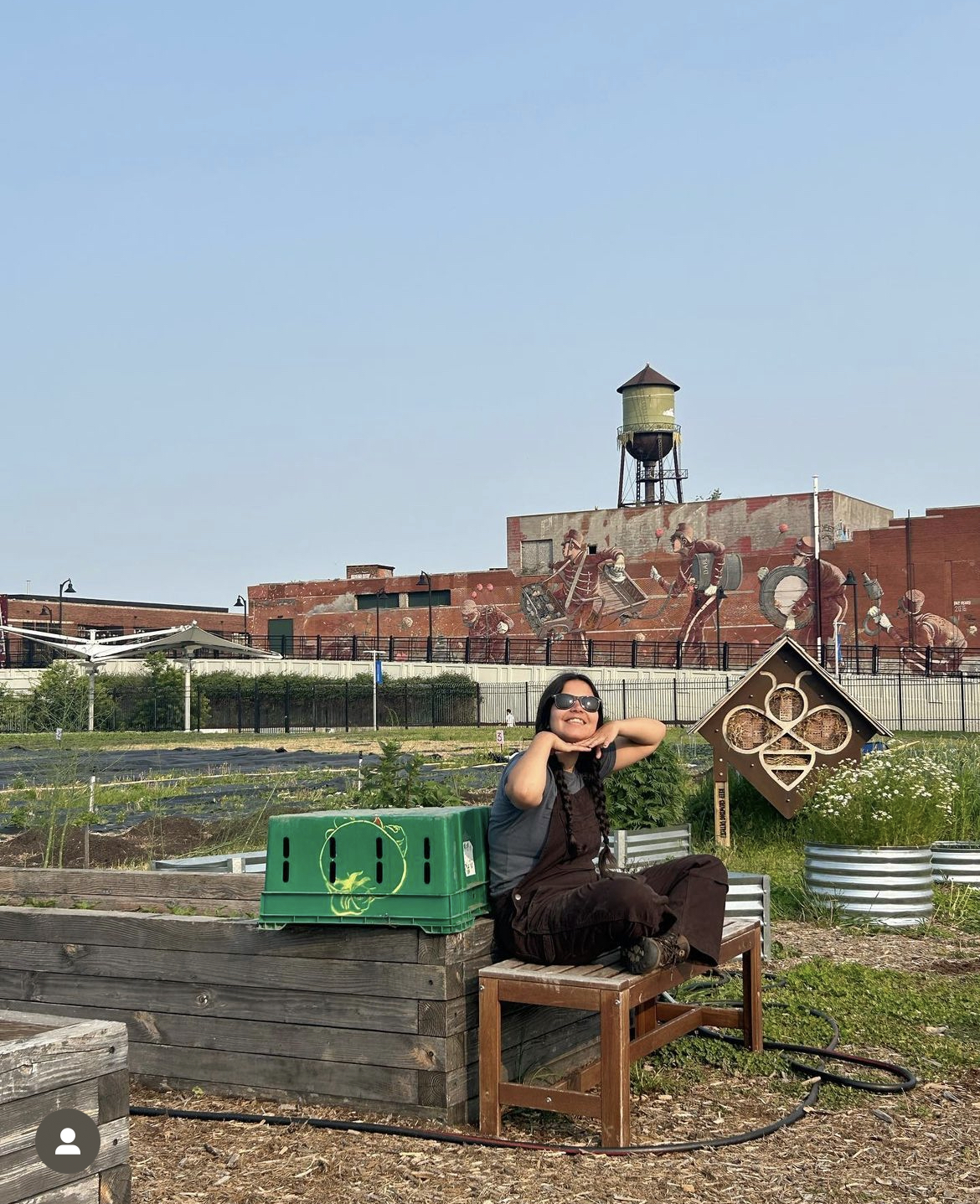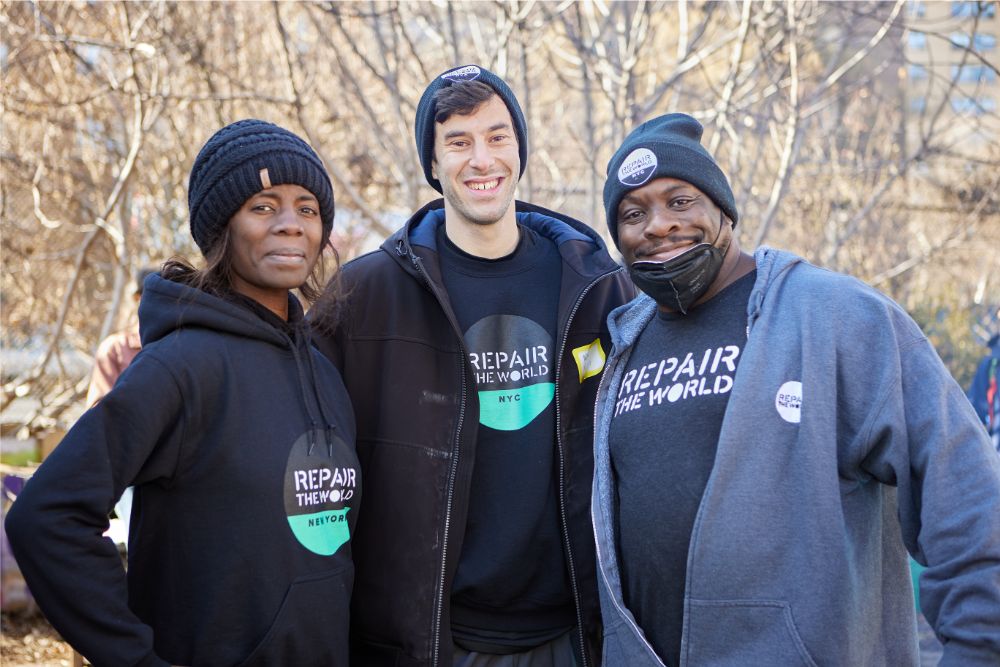Service and Religion, or Service as Religion?
By Matthew Kaufman, 2019-20 Repair the World Brooklyn Fellow
 While studying religion at Dickinson College, I often asked myself what characteristics are shared by all of the world’s faith traditions. A belief in the supernatural, perhaps? Sacred texts and elaborate ceremonies? The so-called “Golden Rule”?
While studying religion at Dickinson College, I often asked myself what characteristics are shared by all of the world’s faith traditions. A belief in the supernatural, perhaps? Sacred texts and elaborate ceremonies? The so-called “Golden Rule”?
Although those are perfectly reasonable answers, I believe each one of them comes up short. Yes, several faith traditions are grounded in beliefs that could be described as supernatural, but not Unitarian Universalism. Yes, anyone who has sat through a Sunday mass can speak of Catholicism’s love for ceremony, but Quaker worship has never struck me as overly ritualistic. As for the Golden Rule, try explaining its value to LaVeyan Satanists (one of their church’s Nine Satanic Statements is “Satan represents kindness to those who deserve it instead of love wasted on ingrates!”)
If none of these religions have pomp, principle, or even the paranormal in common, then what do they all share? Simple: they all share a desire to address our spiritual, physical, and psychological needs.
All of us—my tough-as-nails, New Yorker grandparents included—have these three needs. It is why Jesus speaks not only of his Heavenly Kingdom (a spiritual need) but of feeding the hungry (a physical need); it is why Lao Tzu speaks not only of loving others, but of being loved (a psychological need); and it is why Islam’s Five Pillars include alms (zakat), prayer (salat), and fasting (sawm). From the largest faith traditions to the smallest, such needs are elevated to an intertwined and sacred status, each one of them being essential to our collective wellbeing.
Jews believe in addressing these three needs through halakha (Hebrew for Jewish law). At Repair the World, we focus specifically on addressing these three needs through service grounded in Jewish values, heritage, and tradition.
As a national organization dedicated to elevating the place of service in American Jewish life–addressing issues such as food justice, legal justice, housing justice, and education justice (Phew!), Repair the World engages young adults to work closely with non-profits in nine cities to tackle pressing local needs. Whether this engagement is in the form of Repair’s yearlong Fellowship or through weekly peer-to-peer volunteer opportunities, the service experiences address the spiritual, physical, and psychological needs that are vital to our neighbors and our communities.
One non-profit and Repair partner that best exemplifies this service-based approach to needs is St. John’s Bread & Life. Located in Brooklyn, it provides thousands of New Yorkers with hot meals, social services, and pastoral counseling. Whether St. John’s clients require delicious food or film screenings with friends, their spiritual, physical, and psychological needs are all taken into account. Why? Because St. John’s staff recognizes human needs as an interconnected whole; you cannot address physical hunger without also addressing psychological hunger (e.g., desiring community) and spiritual hunger (e.g., desiring purpose).
As a Repair fellow who works at St. John’s several times per week, I believe its staff has, inadvertently or not, tapped into something vital: the idea that addressing our spiritual, physical, and psychological needs is not only essential to religion, but a religion unto itself.
If our spiritual, physical, and psychological needs are at the core of every religion, then perhaps addressing them in various ways, including through service with others, should be understood as a common tenet linking many faith traditions together. After all, service work not only addresses, in part, those needs for non-profit clients; it also addresses those needs for non-profit staff and volunteers. There is spiritual satisfaction from teaching at Hebrew schools, physical satisfaction from building sheds at community gardens, and psychological satisfaction from making friends at food pantries (among other activities).
By recruiting volunteers for non-profits such as St. John’s, by establishing Fellowships, and by hosting service events rooted in Jewish values year-round, Repair’s work harkens back to President Woodrow Wilson, who once wrote: “There is no higher religion than human service. To work for the common good is the greatest creed.”
Amen, brother!
Matthew Kaufman is a 2019-20 Repair the World Brooklyn fellow. Their free time is spent listening to Van “The Man” Morrison, as well as conducting interfaith work with the various mosques, temples, churches, and synagogues in Crown Heights.


